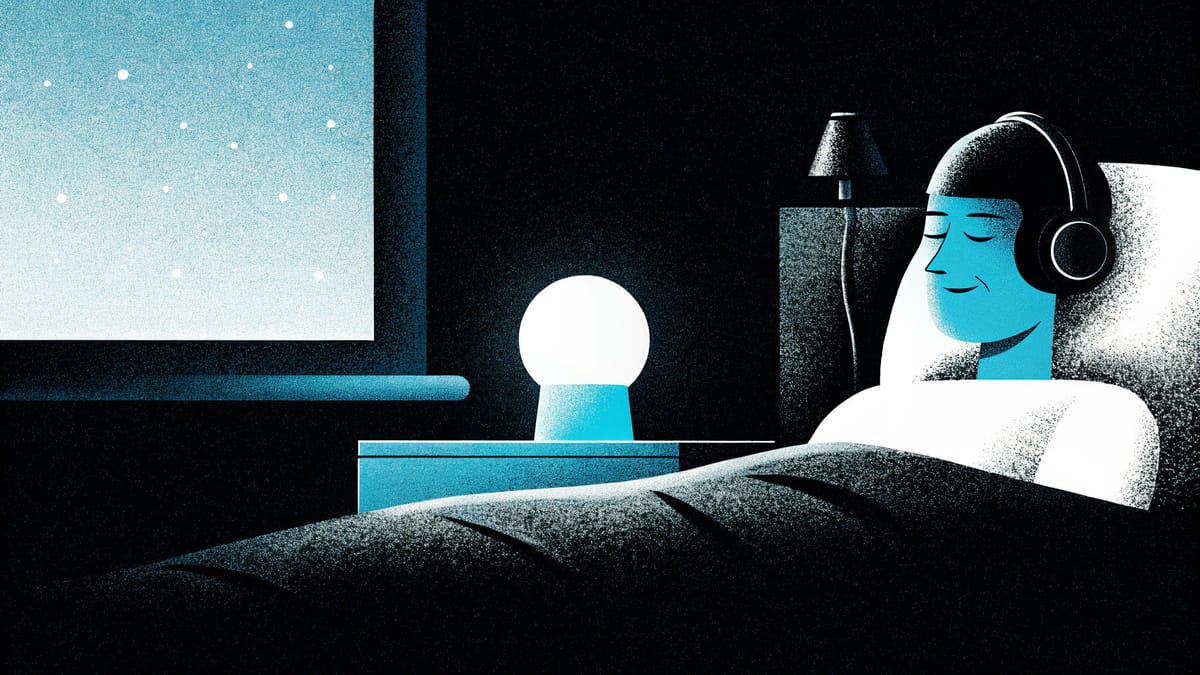How Can Bedtime Storytelling Become Part of a Self-Care Nighttime Routine
Discover how integrating bedtime storytelling into your nighttime routine with Dreamland Tapes can enhance your sleep quality and overall well-being, turning bedtime into a peaceful, restorative self-care ritual.

Did you know that incorporating bedtime storytelling into your nightly routine can transform not just your sleep, but your overall well-being? Whether you're reading to a child or indulging in a book yourself, this simple practice has stress-relieving, cognitive, and emotional benefits. It’s far more than just a pre-sleep pastime; it's a powerful form of self-care.

Stress Reduction And Relaxation
Bedtime storytelling is a fantastic way to decompress after a long day. Whether you're reading aloud to your little one or listening to an audiobook for yourself, engaging with a story can lower stress levels and relax your mind.
This activity provides a mental escape from daily worries, creating a calm and tranquil environment that prepares you for a restful night.
The soothing rhythm of a well-told story or the soft cadence of your own reading voice acts as a signal to your brain that it’s time to unwind. For both children and adults, this break from the chaos of the day can serve as a much-needed pause.
By letting your mind focus on the world of the story, you’re giving it the opportunity to let go of nagging concerns and settle into a more peaceful state.
Improved Sleep Quality
One of the most significant benefits of bedtime storytelling is its impact on sleep quality. Creating a clear, calming transition from your busy day to restful slumber is essential, and storytelling helps bridge this gap beautifully.
The routine of reading or listening to a story sends a signal to your brain that it’s time to wind down.
This process not only helps you fall asleep faster but can also improve the quality of your sleep. By incorporating storytelling into a nighttime ritual, you're promoting deeper, more restorative rest.
Unlike scrolling on your phone or watching TV, this habit doesn’t stimulate the brain with disruptive blue light. Instead, it offers a gradual wind-down that naturally preps your body for sleep.
Cognitive Benefits
Did you know that bedtime storytelling can also sharpen your mind? For adults, this practice enhances mental focus, boosts creativity, and strengthens imagination.
Immersing yourself in a narrative exercises your brain, much like physical exercise benefits the body.
For children, this impact is even more profound. Storytelling aids in language development, expands vocabulary, and contributes to cognitive growth.
By exposing children to the nuanced language of stories, you’re opening doors to better communication skills and a deeper appreciation for learning.
Adults, on the other hand, may find their problem-solving abilities and creative thinking improving over time.
Emotional Well-Being
Stories have a special way of connecting us to our emotions and the experiences of others. For both children and adults, exploring the diverse emotions within a story fosters empathy and emotional awareness.

Through relatable characters and gripping narratives, this process creates a sense of connection and understanding.
Children, in particular, benefit deeply by experiencing a stronger emotional bond with their parents during bedtime reading sessions.
For them, this time spent with a caregiver, combined with the comforting power of a story, creates cherished moments of feeling loved and valued.
Consistent Routine
Consistency is a cornerstone of good sleep hygiene, and bedtime storytelling offers an excellent way to establish it. By sticking to a set bedtime and seamlessly incorporating reading or storytelling, you’re teaching your brain to associate these nighttime habits with sleep.
When this ritual becomes an automatic part of the evening, your body will respond by naturally feeling tired around the same time each night.
Over time, this regularity improves sleep patterns for both children and adults, ensuring that you get the rest you need to take on a new day.
Screen-Free Activity
In today’s tech-heavy world, finding screen-free moments before bed has become crucial for restful sleep. Bedtime storytelling provides the perfect solution.
Whether you’re reading from a physical book or listening to an audio story without a screen, this practice eliminates exposure to blue light from electronic devices.
Blue light disrupts melatonin production, the hormone that regulates sleep. By choosing to read or listen to a story instead of using electronic devices, you help your body maintain its natural sleep-wake cycle.
This small change can make a huge difference in your overall sleep quality.
Mindfulness And Present-Moment Focus
Bedtime storytelling is also a mindful activity that encourages you to slow down and be present in the moment. Immersing yourself in a story can feel meditative, giving your racing mind the chance to quiet down before bed.
Focusing on the details of the story keeps you anchored in the present, pulling you away from any lingering concerns about the past or future.
This mindfulness effect can be particularly beneficial for adults who struggle with overthinking or stress. Children, too, can learn to appreciate the stillness and focus that storytelling brings.
Key Takeaways
- Bedtime storytelling reduces stress, promotes relaxation, and improves overall sleep quality.
- It offers cognitive and emotional benefits for both children and adults, fostering focus, imagination, and empathy.
- Incorporating storytelling into a consistent, screen-free nighttime routine supports mindfulness and better sleep hygiene.